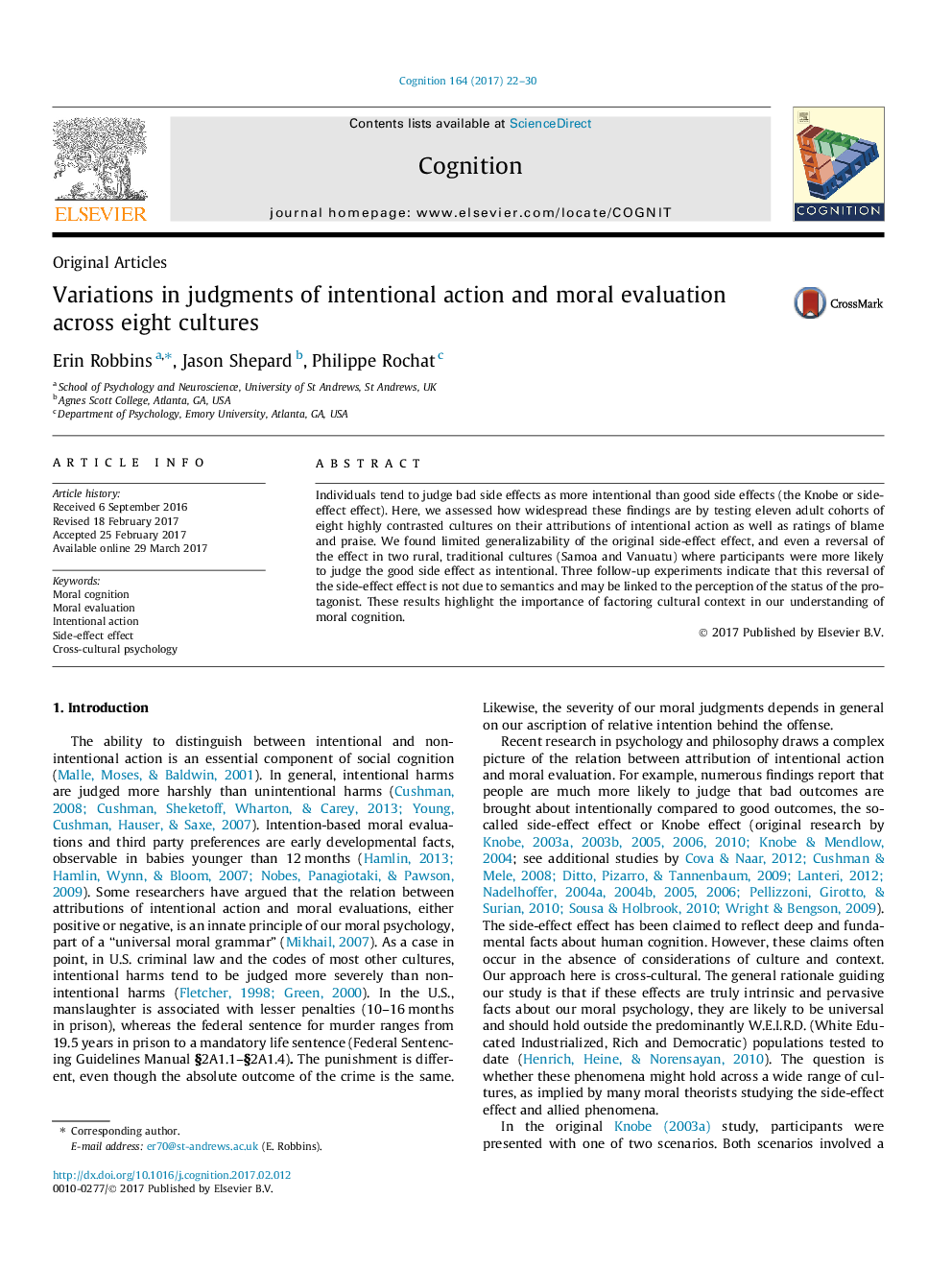| کد مقاله | کد نشریه | سال انتشار | مقاله انگلیسی | نسخه تمام متن |
|---|---|---|---|---|
| 5041598 | 1474103 | 2017 | 9 صفحه PDF | دانلود رایگان |
- Side-effect effect posits bad outcomes judged more intentional than good ones.
- Limited generalizability of the effect in 11 adult cohorts of 8 contrasted cultures.
- Inversion in two traditional societies shows good outcomes judged more intentional.
- Perception of protagonist status mitigates judgements of intention.
- Moral evaluation and attribution of intention can be dissociated.
Individuals tend to judge bad side effects as more intentional than good side effects (the Knobe or side-effect effect). Here, we assessed how widespread these findings are by testing eleven adult cohorts of eight highly contrasted cultures on their attributions of intentional action as well as ratings of blame and praise. We found limited generalizability of the original side-effect effect, and even a reversal of the effect in two rural, traditional cultures (Samoa and Vanuatu) where participants were more likely to judge the good side effect as intentional. Three follow-up experiments indicate that this reversal of the side-effect effect is not due to semantics and may be linked to the perception of the status of the protagonist. These results highlight the importance of factoring cultural context in our understanding of moral cognition.
In the side-effect effect, individuals tend to judge bad side effects as more intentional than good side effects (left panels), and harmful outcomes more worthy of blame than helpful outcomes worthy of praise (right panels). Across highly contrasted populations we found limited generalizability of the original side-effect effect, and even a trend toward inversion of the effect in two rural, traditional cultures (Samoa and Vanuatu) where participants were more likely to judge the helpful side effect as intentional and praiseworthy (shaded bars).214
Journal: Cognition - Volume 164, July 2017, Pages 22-30
